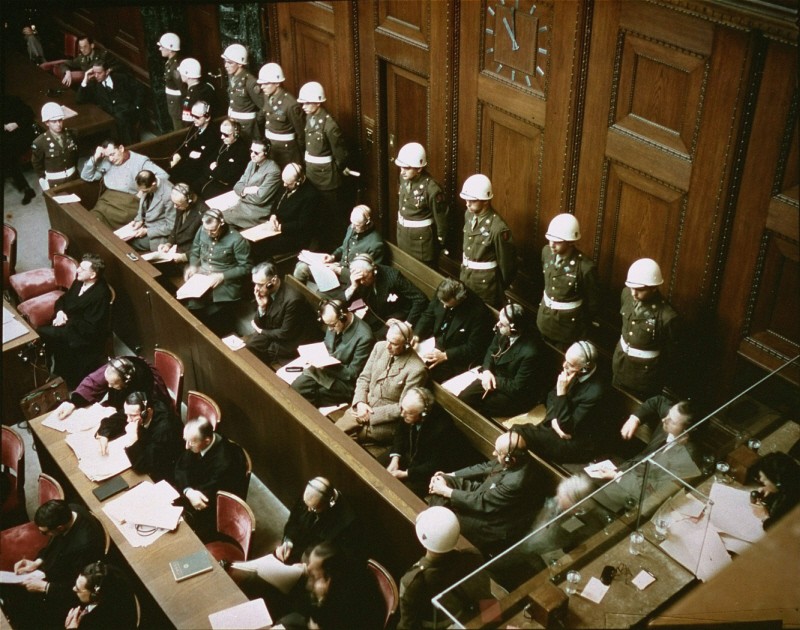
Hjalmar Schacht
In the immediate aftermath of the Holocaust, the world was faced with a challenge—how to hold individually accountable those German leaders who were responsible for the commission of monstrous crimes against humanity and international peace. The International Military Tribunal (IMT) held in Nuremberg, Germany, attempted to face this immense challenge. On October 18, 1945, the chief prosecutors of the IMT brought charges against 24 leading German officials, among them Hjalmar Schacht.
Hjalmar Schacht (1877–1970) was Minister of Economics and General Plenipotentiary for the War Economy until 1937 and Reichsbank (national bank) president until 1939.
Superceded by Hermann Göring in economic affairs, he remained as Minister without Portfolio until 1943. Following the assassination attempt on Hitler in 1944, Schacht was sent to a concentration camp for his contacts with conservative resistance members.
Schacht was acquitted at the International Military Tribunal at Nuremberg. However, he was tried and sentenced by a German denazification court to eight years in a work camp. Schacht was released in 1948.
Critical Thinking Questions
- How were various professions involved in implementing Nazi policies and ideology? Who was brought to trial after the Holocaust?
- What pressures and motivations may have affected Schacht's choices before and during the war?

